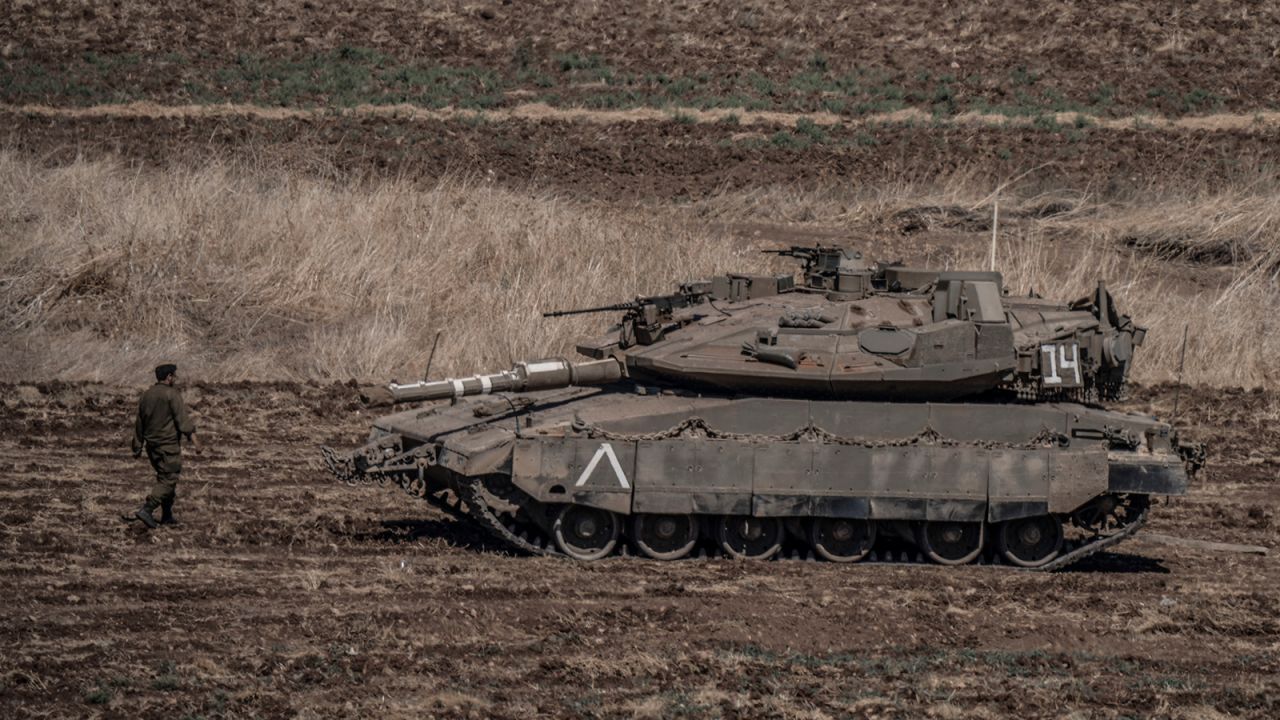The Israeli military is reportedly poised to begin a limited ground operation in southern Lebanon aimed at neutralizing Hezbollah’s military infrastructure along the Israeli border, operations that are likely to begin in the coming days, according to a senior US official familiar with the discussions. The official told The Washington Post that the operation would be much smaller than Israel’s 2006 war with Hezbollah and would not include deep incursions into Lebanese territory. Instead, the official said, it would be aimed at clearing key Hezbollah positions threatening Israeli border communities.
The US has especially been briefed about this operation, and while Israel was planning a far more extensive offensive, The New York Times reports that US officials helped convince Israeli leaders to scale back. The Sunday Times of London refined the plan, which was reportedly for a scaled-back operation that would send small commando forces to destroy key Hezbollah targets. US officials now believe the operation will be limited to specific military targets in south Lebanon, and Israelis will leave after the destruction is carried out.
Heightened Tensions as Ground Invasion Looms
Speculation began on Monday that the operation could begin imminently, following remarks by the Israeli defense minister Yoav Gallant suggesting that the next phase of the decades-long conflict with Hezbollah has begun. Speaking at a meeting with mayors of communities bordering northern Israel, Gallant said the upcoming military operation will ‘have a role in changing the security situation’ in the north. ‘We expect that, by the conclusion of the operation, residents will be able to return home,’ he said. Gallant also addressed Israeli armoured fighters on the northern border, saying that the upcoming operation ‘is linked to our security concept in the north, to reducing the friction in the north, to eliminating and exhausting the enemy’s energies’. But he clarified that the goal is not necessarily to ‘finish’ Hezbollah, despite officials having travelled to Washington last month to appeal for US support in achieving precisely that objective. ‘Question is not whether to kill Hezbollah’s secretary-general Hassan Nasrallah,’ Gallant said, ‘it is whether it guarantees security in the north.’ Nasrallah is very much alive.
U.S. Concerns and Calls for Ceasefire
With Israel gearing up for a ground offensive, there are growing concerns within the US administration that Israel’s planned intervention could result in a far bloodier conflict. President Joe Biden has reportedly urged a ceasefire, and told Israeli prime minister Naftali Bennett this week that he is ‘more worried than you might know’ about Israel’s planned military actions and calling for restraint. Yet Israel, as far as can be determined, appears hell-bent on granting the US president’s wish.
The Pentagon said on Wednesday that the US had been in talks with Israeli military officials about ‘the best way forward.’ At a briefing, the Pentagon spokeswoman Sabrina Singh said that the US was ‘still talking to [the Israeli] government about the best way forward on that.’ The US was ‘still talking to them about the idea of the ground invasion,’ Singh said. The US had been given notice by Israel but it had not coordinated the Sunday strikes in Yemen with US forces, Singh said.
Strategic Considerations and Hezbollah’s Role
Hezbollah is also a longstanding major threat to Israeli security, as it is a proxy of the Iranian regime and operates along the Lebanon-Israel border. In the past few weeks, Iranian-backed Hezbollah forces have fired rockets into northern Israel and launched other attacks against the Israeli border towns. The group’s leadership remains defiant in the face of Israeli military strikes, and it is feared that the situation could escalate further into a regional war.
The planned Israeli ground operation could be an attempt to decisively cripple Hezbollah’s capacity along the border, but without risking the kind of ground war that characterized the 2006 Lebanon War. As widely reported, the stated goal of the operation is ‘to neutralize the … military capability of the Hezbollah, eliminating its fortifications along the border with Israel and its weapons-storage sites that threaten the country’s civilian population’.
Uncertain Future and International Reactions
While Israel has insisted publicly that the ground incursion will be narrow in scale, it’s not clear what might happen next; military analysts say that even a limited Israeli ground incursion could spark strong Hezbollah counter-attacks engulfing both sides in a protracted conflict. The international community, including much of the US, has pressed for restraint, with US officials saying they hope the operation stops short of where it begins.
With the stakes getting higher as the drama unfolds, the world will be watching Israel’s northern border, and the balance between security needs and the risk of wider conflict. For live coverage, see The Washington Post and The New York Times.

